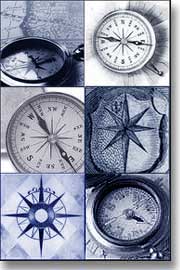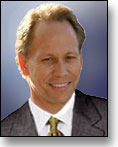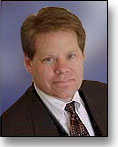![]()


![]()
|
"The way we organize schools and
provide instruction is essentially the same as it was when our Founding
Fathers went to school….We still educate our students based on an
agricultural timetable, in an industrial setting, yet tell students they
live in a digital age.” |
 |
| Solution Description |
 This
27 hour professional
development solution uses a blended approach to e-learning. Although all
content is available online, three modules have been designed to be
conducted in a scheduled local school district setting. This allows participants to share their work and discuss major concepts together
as a cohort. The Outline identifies which modules can be completed
independently and which ones should be conducted "live" with
face-to-face interaction. The live modules are to be conducted by a local
district teacher or administrator that is referred to throughout the
modules as the learning Mentor. Some groups may provide their own
leadership instead of having a designated Mentor. In this scenario, all
members would meet for Module 1 and individuals would sign up to serve as
Mentors facilitating one or more of the remaining 2 live face-to-face
modules. Mentor notes are available for each live session and members
choosing to serve as a Mentor should familiarize themselves with the
Mentor notes before the scheduled session. All modules have been
designed to help educators develop the insights, knowledge, and skills
they need to become effective classroom and school leaders, better able to
increase student learning.
This
27 hour professional
development solution uses a blended approach to e-learning. Although all
content is available online, three modules have been designed to be
conducted in a scheduled local school district setting. This allows participants to share their work and discuss major concepts together
as a cohort. The Outline identifies which modules can be completed
independently and which ones should be conducted "live" with
face-to-face interaction. The live modules are to be conducted by a local
district teacher or administrator that is referred to throughout the
modules as the learning Mentor. Some groups may provide their own
leadership instead of having a designated Mentor. In this scenario, all
members would meet for Module 1 and individuals would sign up to serve as
Mentors facilitating one or more of the remaining 2 live face-to-face
modules. Mentor notes are available for each live session and members
choosing to serve as a Mentor should familiarize themselves with the
Mentor notes before the scheduled session. All modules have been
designed to help educators develop the insights, knowledge, and skills
they need to become effective classroom and school leaders, better able to
increase student learning.
|
The overarching goal
of this solution is to chart a
path that will equip and prepare educators to align current
curriculum and assessment with future job requirements,
transitioning learning... |
 |
| Enduring Understanding |
The degree of quality in the instruction delivered to our diverse student population will directly impact both, America's future as a world leader in the Knowledge Age, and individual students' ability to create successful and fulfilling lives.
| Essential Questions |
To better serve their diverse student groups, today's classroom teachers need an understanding of the process of teaching and learning in the Knowledge Age. In this module learners will experience four distinct characteristics of Knowledge Age teachers. In each stage, teachers will encounter learning events that equip them to formulate answers to the following essential questions:
1. Teacher as a Learning Guide
-
What is Curriculum Mapping, and how does it improve teacher planning?
-
How does the Backward Design Process improve teaching and learning?
-
How can educators guide students to both know and to truly understand?
2. Teacher as an Assessor & Evaluator
-
What insights can be gained by viewing assessments from the learner's perspective?
- What are the most effective ways to measure students' understanding?
- What is involved in developing a high-quality, comprehensive assessment plan?
3. Teacher as a Counselor and Diagnostician
- How can educators effectively differentiate instruction for students based on their ability, temperament, interests, learning styles, and ways of thinking?
4. Teacher as a Learning Environmentalist
-
What role does technology play in Knowledge Age teaching and learning?
-
How is the definition of what it means to "know something" changing, and what do those changes imply for educators?
| Standards |
Projects and activities in each module are aligned with the National Staff Development Council (NSCD) Standards for Staff Development. Staff development that improves the learning of all students:
I. Learning Communities - Organizes
adults into learning communities whose goals are aligned with those of the
school and district.
II. Leadership - Requires skillful school and district leaders who
guide continuous instructional improvement.
III. Resources - Requires resources to support adult learning and
collaboration.
IV. Data-Driven - Uses disaggregated student data to determine
adult learning priorities, monitor progress, and help sustain continuous
improvement.
V. Evaluation - Uses multiple sources of information to guide
improvement and demonstrate its impact.
VI. Research-Based - Prepares educators to apply research to
decision making.
VII. Design - Uses learning strategies appropriate to the intended
goal.
VIII. Learning - Applies knowledge about human learning and change.
IX. Collaboration - Provides educators with the knowledge and
skills to collaborate.
X. Equity - Prepares educators to understand and appreciate all
students, create safe, orderly and supportive learning environments, and
hold high expectations for their academic achievement.
XI. Quality Teaching - Deepens educators’ content knowledge,
provides them with research-based instructional strategies to assist
students in meeting rigorous academic standards, and prepares them to use
various types of classroom assessments appropriately.
XII. Family Involvement - Provides educators with knowledge and
skills to involve families and other stakeholders appropriately.
If interested, download
a PDF file that contains the 12 standards and the rationale for each of
them.
| Performance Tasks and Assessment |
Teachers will produce relevant products that can be used in the classroom. All products and performance tasks will be scored using either rubrics or checklists.
| Performance Task (Standard) | Assigned | Due | Evaluation | Points |
| Module 1 |
Module 9 |
Checklist | 15 | |
| Module 1 |
Module 1 |
Checklist | 5 | |
| Module 2 |
Module 2 | Holistic Rubric |
5 | |
| Module 3 |
Module 3 |
Analytic Rubrics |
10 | |
| Module 2 |
Module 6 |
Checklist | 10 | |
| Module 4 |
Module 4 |
Holistic Rubric |
5 | |
| Module 4 |
Module 4 |
Holistic Rubric |
5 | |
| Module 5 |
Module 5 |
Holistic Rubric |
5 | |
| Module 6 |
Module 7 |
Checklist | 10 | |
| Module 7 |
Module 7 |
Checklist | 10 | |
| Module 8 |
Module 8 |
Checklist | 20 | |
| Module 10 |
Module 10 |
Holistic Rubric |
12 | |
| Total | 100 |
| Authors |
These modules contain concepts and strategies recommended by some of the nations most recognized thought leaders in education. The concepts were organized and embedded into this solution by the following Quality Learning staff members:
 |
Dr. Chip
Pike Quality Learning One Post Oak Tower Suite 500 Houston, TX 77056-3807 cpike@qualitylearning.net |
 |
David
Malone Quality Learning One Post Oak Tower Suite 500 Houston, TX 77056-3807 dmalone@qualitylearning.net |
"One of the greatest challenges facing
educators today is the need to customize instruction to meet the
individual needs of each student. It is an undertaking that requires new
knowledge and teaching skills. The content in this learning path
has been designed to equip and prepare educators to meet the needs of
learners in the Knowledge Age. Our country holds a place of world
leadership because of the emphasis we have placed as a nation on
education. The future demands that we concentrate our efforts on providing
the highest quality of education for every child. In that regard, we hope you find this professional development experience both challenging
and rewarding."
~ Dr. Chip Pike
| Evaluation |
Student feedback is critical to the continuous improvement of Quality Learning courses. Learners are given an opportunity to provide electronic feedback to briefly rate the usefulness of each learning event in each module. The feedback learners provide enables the curriculum designers to revise and refine the content in an effort to achieve the highest quality learning resource.
© Quality Learning 2003